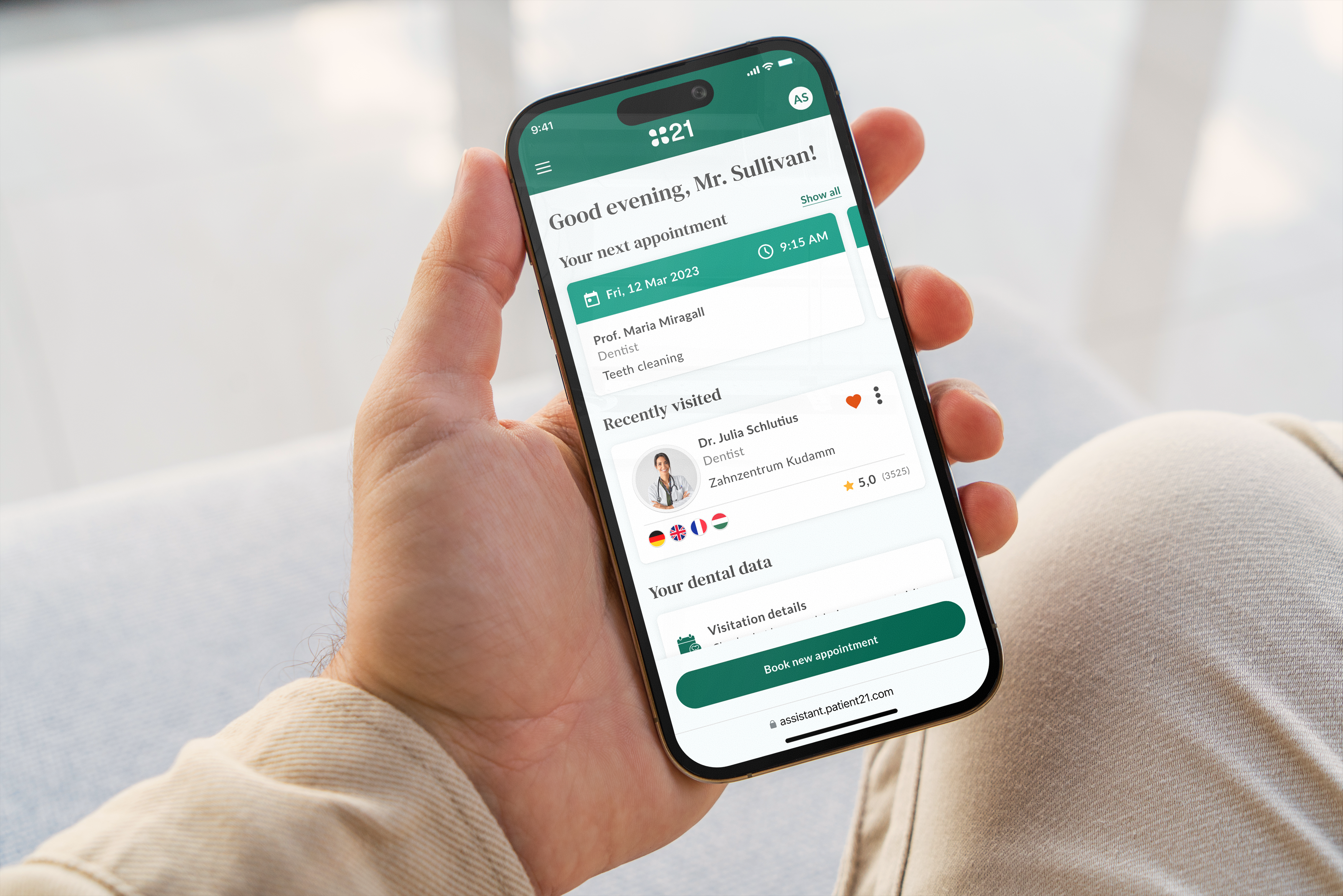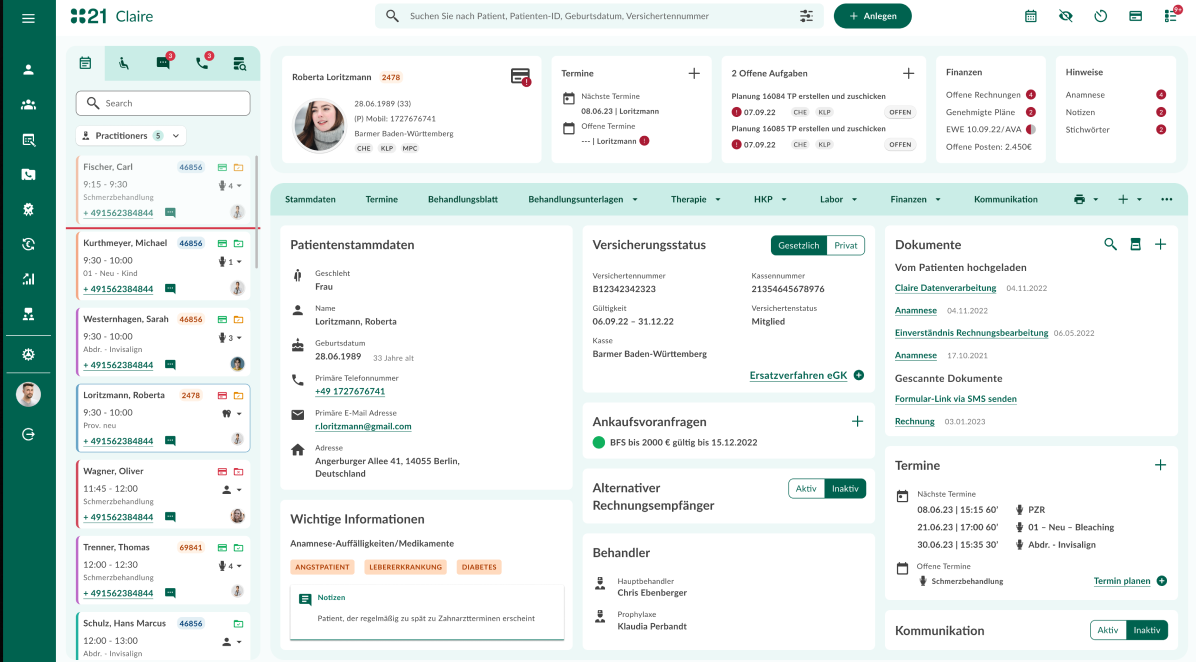Patient21, a digital healthcare startup with brick-and-mortar clinics, raises $108M to grow beyond Germany
Patient21, a four-year-old German startup that combines a digital healthcare platform with real-world brick-and-mortar clinics, has raised €100 million ($108 million) in a Series C round of funding led by Israeli VC firm Pitango, constituting a mix of equity and debt.
Founded out of Berlin in 2019, Patient21’s platform spans pretty much the whole patient cycle, from online bookings through digital case histories, check-ins, billing, insurance, and more.
However, while telemedicine has been on something of an upwards trajectory in recent years, accelerated somewhat by the global pandemic, Patient21’s platform is notable insofar as it doesn’t offer a remote healthcare option like its U.S. counterpart Carbon Health. Instead, the company has developed proprietary software for managing patients, and then steers them toward its 50-plus outpatient clinics across Germany.
This is partly because Patient21 is largely focused on dentistry for the time-being, with more than 80% of its clinics currently targeting oral health, with the rest split between gynaecology and GP practices.
“Dentistry inherently requires in-person consultations for comprehensive diagnosis and treatment,” Patient21 co-founder and CEO Chris Muhr told TechCrunch. “The nature of dentistry involves visually inspecting oral health, utilizing diagnostic tools like x-rays, and addressing emergencies promptly. These aspects are best served through onsite consultations to ensure the highest standards of care.”

Patient21 consumer app Image Credits: Patient21
The company says it’s currently handling more than 300,00 patient visits each year, and it plans to expand to cover additional areas of healthcare in the future — at which point it may extend into virtual healthcare.
“As we continue to expand and develop our presence in human medicine, we are actively exploring the integration of telehealth solutions into our offerings,” Muhr said.
It’s worth noting that there are multiple facets to Patient21’s software, with the patient-facing app just one side. Indeed, the company also has an app for doctors and a clinic management system.
“In a sector that is increasingly supply-constrained due to staff shortages, an aging health workforce, and surges in chronic illnesses, our focus is on supporting healthcare professionals and making sure their time is used as wisely as possible,” Muhr continued. “We’ve developed a suite of clinic-facing software that accommodates the needs of our healthcare professionals and local clinics — it frees our clinical teams up from tedious administrative tasks so that they can focus on what they are best at: taking care of patients.”

Patient21 clinic management system Image Credits: Patient21
Healthy business
Patient21 had previously raised around €66 million ($71 million) in funding, and with its fresh cash injection it said that it plans to grow its software and expand beyond Germany. “We expect to launch in two new European markets within the next 12 months,” Muhr noted.
Opening physical clinics also instinctively seems like a resource-intensive endeavor, but Muhr said that its clinics have become “operationally profitable” quite quickly.
“As a result, we grow with minimal equity investment needed to roll out new clinics,” he said. “Thus, most of the funding goes towards software development to further enhance our platform capabilities.
Moreover, further down the road there could be scope for Patient21 to license out its booking and patient-management software.
“Long-term we believe there will be an opportunity to form partnerships or to run clinics in the form of a franchise model, providing franchisees with software and services offering that is unique in the market,” Muhr added.
The company’s Series C round was mostly equity — we’re told “more than 70%” — and aside from lead backer Pitango, participants included PICO Venture Partners, Bertelsmann Investments, Artian, Target Global, Piton Capital, and several angel investors. The debt segment was provided by IPT Partners.
Patient21, a digital healthcare startup with brick-and-mortar clinics, raises $108M to grow beyond Germany by Paul Sawers originally published on TechCrunch
from TechCrunch https://ift.tt/fe37axo
via IFTTT
Comments
Post a Comment